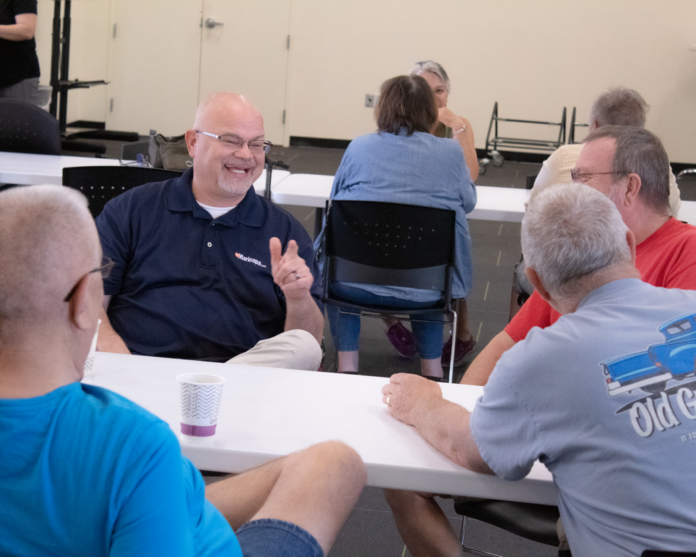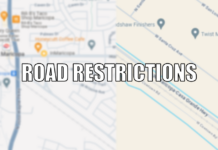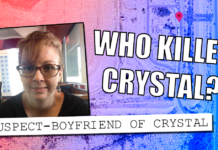
In today’s digital age, social media has become ubiquitous, intertwining into the fabric of our daily interactions. As a city council member and small business owner, I’ve seen firsthand the transformative power of these platforms. They enable us to reach a wider audience more efficiently than ever before. However, this convenience comes at a cost. The tool that has democratized information and fostered connections across the globe is also contributing to the erosion of civil communication. I am partially guilty of this myself.
The allure of social media is undeniable. Communicating instantly with constituents and customers is invaluable for someone in my position. It allows me to disseminate information quickly, gather feedback, and engage with the community broadly. Yet, this reliance on digital communication over face-to-face interactions has unintended consequences. Online translation often needs to gain the richness of personal connection, the nuance of a spoken conversation, and empathy from physical presence.
Social media, by its nature, encourages brevity and immediacy. While this can make communication more efficient, it simplifies complex issues into bite-sized, often polarizing statements. This reductionist approach to discourse needs to lend itself better to the complexities of civil dialogue. These platforms’ anonymity and physical detachment can encourage individuals to say things they might not in person, leading to a coarsening public conversation.
Moreover, the algorithms that underpin these platforms are designed to maximize engagement, often by amplifying content that provokes emotional reactions. This can create echo chambers where diverse perspectives are drowned out by the loudest voices, further entrenching division and impeding constructive dialogue. In my dual roles, I’ve observed how quickly discussions can devolve, with the focus shifting from understanding and addressing community issues to winning arguments or silencing opposition.
Acknowledging my contribution to this dynamic has been sobering. In my eagerness to connect with as many people as possible, I’ve sometimes prioritized quantity over quality communication. The convenience of a quick post or tweet has occasionally taken precedence over the deeper, more meaningful interactions from face-to-face engagement. This realization has led me to reconsider using these tools, striving to foster more thoughtful and respectful discourse.
To counteract the negative impacts of social media on civil communication, we must be intentional in our use of these platforms. This involves recognizing their limitations and consciously seeking opportunities for direct, personal interactions. As individuals and as a society, we must cultivate digital literacy skills that help us navigate online spaces critically and empathetically. Additionally, as someone who holds public office and manages a business, I have a responsibility to model the online and offline communication I wish to see.
Lastly, while social media has revolutionized how we connect and communicate, it has also presented challenges to maintaining civil discourse. By acknowledging our roles in perpetuating these issues and actively working to mitigate them, we can begin to rebuild the foundations of respectful and constructive communication. It’s a journey I am committed to, recognizing that the path to a more cohesive society lies in our digital interactions and the quality of our human connections.
Vincent Manfredi is an owner of InMaricopa.




![City gave new manager big low-interest home loan City Manager Ben Bitter speaks during a Chamber of Commerce event at Global Water Resources on April 11, 2024. Bitter discussed the current state of economic development in Maricopa, as well as hinting at lowering property tax rates again. [Monica D. Spencer]](https://www.inmaricopa.com/wp-content/uploads/2024/04/spencer-041124-ben-bitter-chamber-property-taxes-web-218x150.jpg)

![3 things to know about the new city budget Vice Mayor Amber Liermann and Councilmember Eric Goettl review parts of the city's 2024 operational budget with Mayor Nancy Smith on April 24, 2024. [Monica D. Spencer]](https://www.inmaricopa.com/wp-content/uploads/2024/04/spencer-042424-preliminary-budget-meeting-web-218x150.jpg)





![Alleged car thief released without charges Phoenix police stop a stolen vehicle on April 20, 2024. [Facebook]](https://www.inmaricopa.com/wp-content/uploads/2024/04/IMG_5040-218x150.jpg)




![City gave new manager big low-interest home loan City Manager Ben Bitter speaks during a Chamber of Commerce event at Global Water Resources on April 11, 2024. Bitter discussed the current state of economic development in Maricopa, as well as hinting at lowering property tax rates again. [Monica D. Spencer]](https://www.inmaricopa.com/wp-content/uploads/2024/04/spencer-041124-ben-bitter-chamber-property-taxes-web-100x70.jpg)